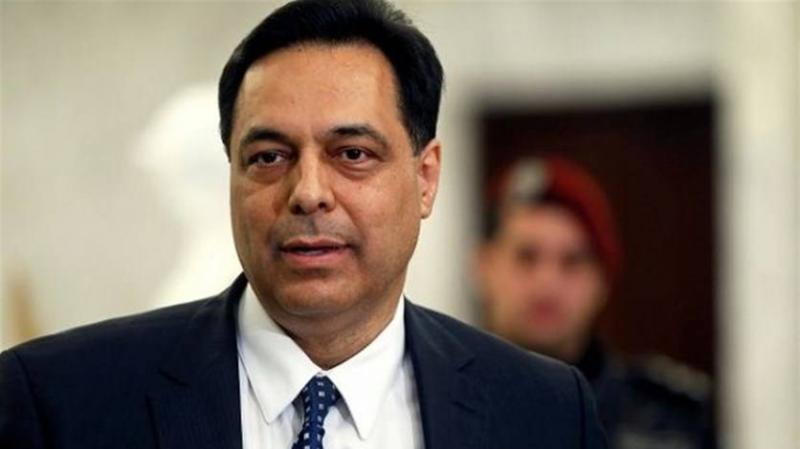The caretaker Prime Minister Hassan Diab confirmed that he "is waiting for a decision from Parliament allowing the caretaker government to meet to discuss the budget project submitted by Finance Minister Ghazi Wazni and approve it in preparation for its transfer to the House of Representatives."
Diab clarified during an interview with "Forbes Middle East" that "the only point of contention between President Michel Aoun and the designated Prime Minister Saad Hariri is over the names of the Ministers of Justice and Interior." He addressed various topics concerning the Lebanese situation, emphasizing that he does not interfere in the details of government formation, and that his initiative stems from the desire to resume the formation process and build on the positives, which are "according to the data I have, numerous after reaching consensus on most of the issues that were stuck, from the number of ministers to the distribution of seats."
He added: "Lebanon's situation cannot endure a long caretaker government; we have been in this status for six months, and the Lebanese people want solutions to their economic crises."
In response to a question: "If we brought you back a year, what would you have done differently?" he answered: "I do not regret taking on the position of Prime Minister under these difficult circumstances. I knew exactly what I was facing, but I did not expect that we would stop paying Eurobonds, that COVID-19 would hit, and that the Beirut port explosion would occur—all factors that complicated matters. However, if I went back a year, I would change one thing: I would give the political class a choice between me and the Governor of the Central Bank, Riad Salameh, after April 24, the day I spoke following a cabinet meeting during which I expressed my observations regarding the performance of the Central Bank Governor."
Diab had said in that statement: "There is a suspicious ambiguity in the performance of the Central Bank Governor, and the bank is either incapable or paralyzed by decision or inciting this alarming deterioration."
Regarding the International Monetary Fund loan to Lebanon valued at $246 million, Diab indicated that the government is preparing the loan project to be referred to Parliament for approval. He noted that the decision to distribute the amounts to beneficiaries in Lebanese currency rather than US dollars was made by the Central Bank and the Ministry of Finance to add this dollar liquidity to the reserves, which contributes to the central bank's support of basic commodities, with an annual value of approximately $6 billion.
He said: "Personally, I would have preferred to distribute the funds in US dollars, but the urgent need for this liquidity made us agree to provide these aids at an exchange rate exceeding 6200 Lebanese pounds per dollar. This was the Finance Minister's decision and has been communicated to all donor entities, from the World Bank to the European Union and other organizations, to provide aids based on an exchange rate that exceeds the platform rate adopted by the Central Bank and banks, which is 3900 Lebanese pounds per dollar."




